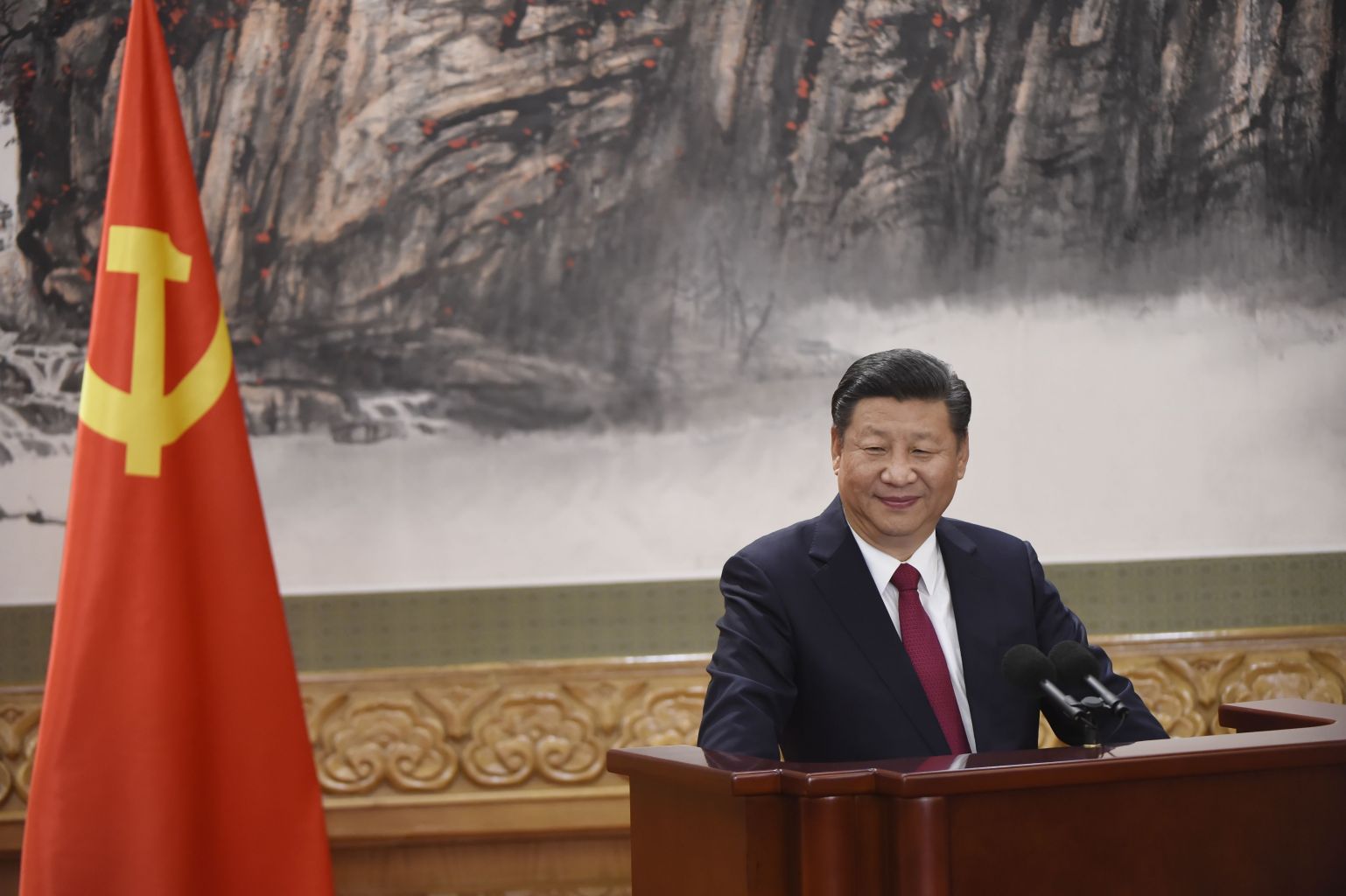News Analysis
China's new leadership line-up shows a confident and powerful President Xi
Sign up now: Get insights on Asia's fast-moving developments

Chinese President Xi Jinping introduces the Communist Party of China's new Politburo Standing Committee at the Great Hall of the People in Beijing on Oct 25, 2017.
PHOTO: AFP
Follow topic:
BEIJING - Breaking with convention, President Xi Jinping has not named potential successors to China's top decision-making body, the Politburo Standing Committee (PSC).
This is not unexpected, as it has been much speculated in the run-up to the five-yearly National Congress of the Chinese Communist Party (CCP) that Mr Xi will not name any potential successor.
This is because he is planning to go for a third term after the end of his second term, say analysts.
It is conventional practice that the CCP leadership names successors in training to the PSC after the first of its two five-year terms to prepare them for leadership
That Mr Xi, who was re-elected general secretary of the party at the first plenum of the new Central Committee on Wednesday, has not named potential successors is indicative that he has greater authority in deciding who his successors would be, unlike his predecessors, said Professor Yang Dali of Chicago University.
In the past, retiring leaders had named incoming leaders' successors. President Jiang Zemin had his successor decided for him and likewise, Mr Hu Jintao.
The disgraced former Chongqing party chief Sun Zhengcai and Guangdong party chief Hu Chunhua had been seen as having been designated as potential successors to Mr Xi by his predecessor. But Mr Sun has fallen and Mr Hu has not made it to the PSC.
However, in a sign that he is very much in power, Mr Xi has people who are mostly loyal to him in key positions, whether it is in the propaganda system or the personnel system.
Mr Xi also showed his confidence in naming two non-allies to the PSC: current Vice-Premier Wang Yang, a member of the rival Communist Youth League faction, or tuanpai, and Mr Han Zheng, who was Shanghai party chief until the 19th congress party and is linked to the Shanghai clique of former president Jiang Zemin.
But the tuanpai and Shanghai faction have been much weakened through Mr Xi's anti-corruption campaign and other moves.
A third reason is to show that he is leader of the whole of the CCP.
While there is no one strong enough to challenge him, Mr Xi has included non-allies possibly for stability and unity of the party.
However, he has studded the Politburo with his protégés, several of them from the sixth generation of leaders and young enough to succeed him. This creates competition among these members to perform and shine.
Among them are Mr Chen Min'er, 57, party secretary of Chongqing who had been tipped earlier as a possible successor to Mr Xi.
Another is Mr Ding Xuexiang, 55, the deputy of outgoing director of the party's general office, Mr Li Zhanshu.
A fourth member is Mr Li Qiang, 58, incumbent party chief of the wealthy coastal province Jiangsu, who worked with Mr Xi when the latter was party chief of Zhejiang province.

